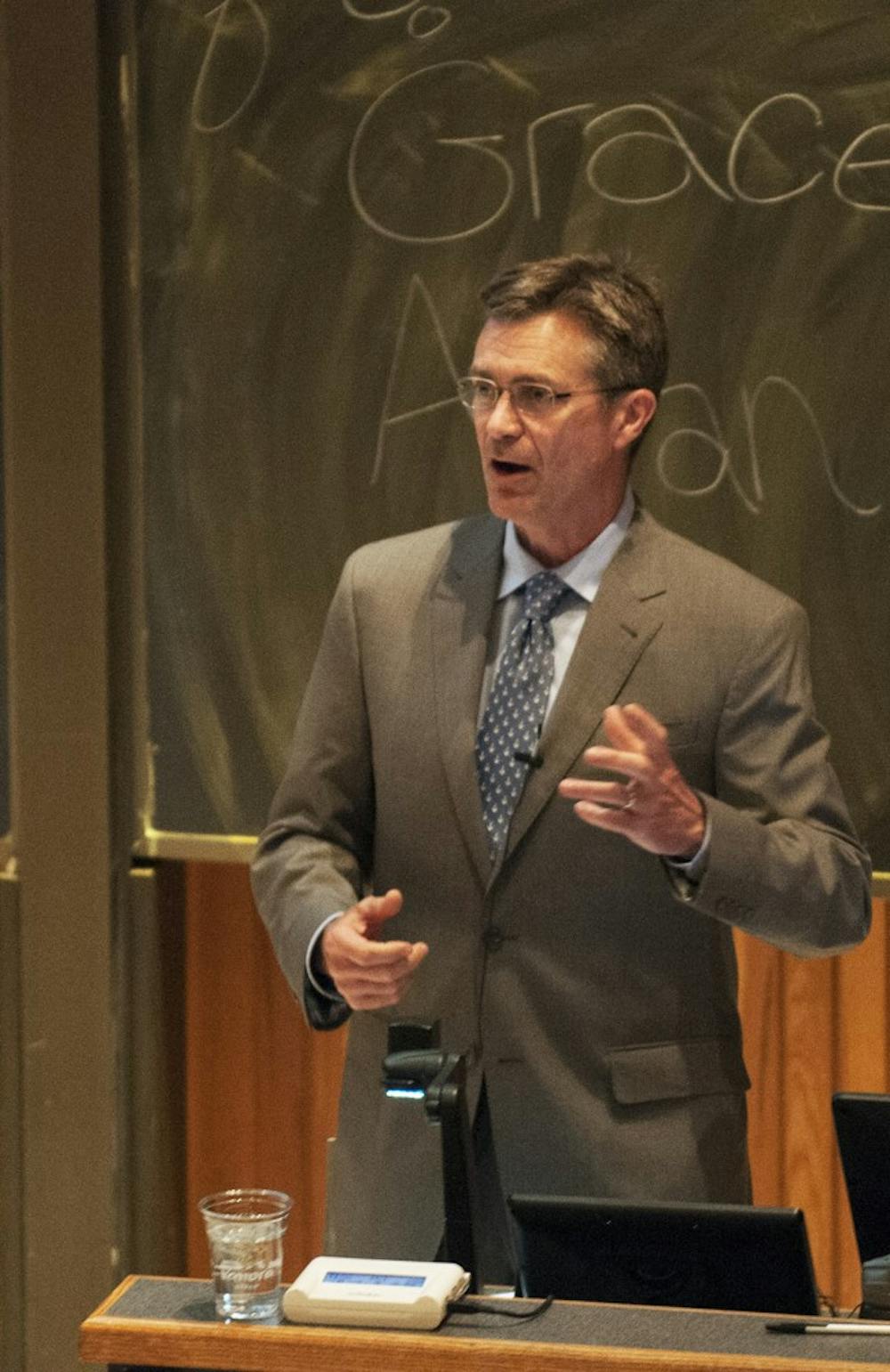The 24th annual Last Lecture Series was hosted by the University’s Housing and Residence Life in the Chemistry Auditorium Wednesday. Topics in the past have ranged from the effects of technology to socioeconomic issues to politics to life in general.
This year’s series featured History Prof. Grace Hale, director of the American Studies Program, and Batten Dean Allan Stam.
Both said they felt it was an honor to be invited to do such a talk and a great opportunity to convey important messages.
“The original Last Lecture is pretty daunting and absolutely amazing and a lot to live up to,” Hale said. “I spent the next week or two asking my friends, colleagues, neighbors and kids what to talk about and of course everyone chimes in with something different.”
“[It was a] challenge to find a subject that [appeals] regardless of what people are studying and focuses on issues that are at the heart of what it means to be a student at the University of Virginia,” Stam said.
Hale focused on the importance of history by recounting her own. She stressed the need for the generation of current students at the University to be aware of the past in order to fix the future, “to imagine new ways of living and distributing resources.”
“History is a mode of thought that mediates between individuals and agencies and indicates what has been, what is and what might be,” Hale said. “It illuminates human limits and human possibilities.”
Hale detailed her childhood growing up in the deep south during the Civil Rights Movement, where she experienced “history as silence and obscurity.”
“I thought my school was called Colored Elementary because of the crisp black and white tiles in the entryway,” Hale said.
Hale discussed how her grandfather inspired her with his stories and the stories of the people around him, yet he himself took part in lynching as a police officer. She said the man who inspired her was also a monster.
“History isn’t easy, it isn’t neat, it isn’t going to make things right, but it helps us understand that people act within their structures,” Hale said. “Real history makes us humble and we are going to need that to fix the world we are living in.”
Stam discussed what it really means to be a true leader, which he said lies at the core of the University’s identity.
Stam said good leadership “is the art of getting things done, simple but not easy, straightforward and not complicated.”
Stam commented on how many people at the University and in society are “deeply skeptical that individual leaders matter.” He said economists study markets as opposed to the power of individuals in them and political scientists focus on international relations and institutions that are so “powerful that they ruin the ability of any individuals to stand up to the power of the institutions.”
He said we as a society mistakenly try to convince our children all of them are above average and that each is unique, and jokingly shared an anecdote of his 10-year-old son having 12 soccer trophies only having won one game.
“We have come to value expression more than accomplishment, something that devalues leadership,” Stam said. “We should judge leaders by what they do and do not accomplish … then comes the question ‘how should we balance their accomplishments with their failings?’”
Stam referred to Thomas Jefferson as a man who resonates as one of the greatest leaders in American history throughout the University community by highlighting his flaws and his victories to exemplify the tough balance in judging good leadership.
“You can’t lead if you don’t know where you want to go. The great leaders knew themselves really well, they knew where they wanted to go and they put the interest of others before their own,” Stam said. “Find the vision that you like that appeals to you, inspires you, then help other people in the community push the rock up the hill.”







